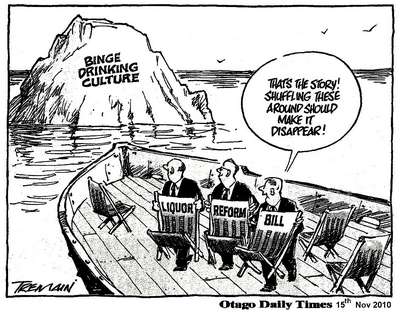Raising Drinking Age Just One Tool To Tackle Harm
 A call by the Police to raise the drinking age, which echoes previous calls by the NZ Medical Association, but says that other factors around price, availability, penalties and addiction services must be part of the package to tackle the massive price of alcohol-related harm.
A call by the Police to raise the drinking age, which echoes previous calls by the NZ Medical Association, but says that other factors around price, availability, penalties and addiction services must be part of the package to tackle the massive price of alcohol-related harm.
Health boards, health professionals, police, family groups, addiction experts, the Prime Minister’s chief science adviser, leading scientists, and the general public – including young people – have all been shouting to politicians to raise the drinking age to 20 in order to protect young people and to save lives. Politicians have been out of touch with grassroots New Zealanders on this issue.
As argued in our 2011 report on this issue, alcohol policies and decisions about a legal drinking age should be firmly based on the health and well-being of New Zealand’s young people. New medical evidence on accident probability, disease and brain development, research on suicide and homicide, along with the Child and Youth Mortality Review make it absolutely clear that delaying the age at which teenagers and young people have easy access to alcohol would reduce the level of damage they and society suffer at the moment as well as contributing to their future health and well-being.
We need to send an unambiguous message to young people and society about what is good for young people, and raising both the drinking and purchase age would make it easier for parents and the community to work together to prevent harm to our young people.
But to make any inroads in to tackling our overall alcohol abuse culture, we need to also target the equally important issues of accessibility, pricing especially around ‘loss leading’, raising the drinking age, penalties for public drunkenness, placing health warnings on alcohol products, and increasing treatment opportunities for alcohol abuse. The association of sport with a drinking culture is one of the strongholds of the alcohol industry which needs to be tackled.
Ultimately, it is not alcohol per se that is the problem. It’s the abuse of alcohol and the culture of binge drinking that we have allowed to develop through liberalised laws. We must reverse these liberalised laws.






